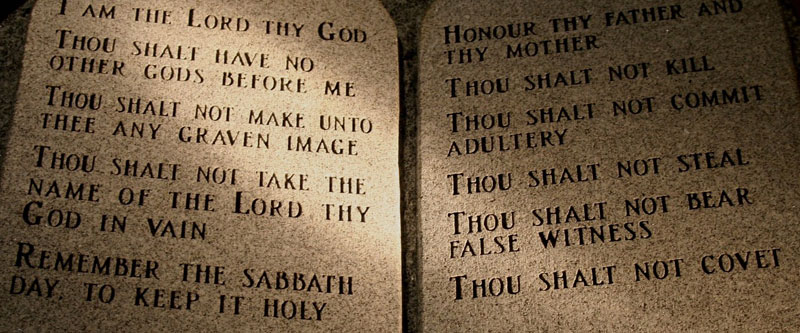“The sins forbidden in the second commandment are…the making any representation of God, of all or of any of the three persons, either inwardly in our mind, or outwardly in any kind of image or likeness of any creature whatsoever;” (Westminster Larger Catechism, #109)
My experiences as an elder and pastor in the Presbyterian Church in America have shown a lack clarity and/or agreement on the application of the 2nd commandment as it pertains to representing the Son in pictures. There is a range of positions pastors and elders take in the PCA. At risk of over-simplifying the issue, let me try to summarize the positions, as I have seen them expressed.
One group affirms the plain confessional view as summarized above in WLC #109, which prohibits any representation of God. Another group would object to depicting him in corporate worship, but would allow pictures of him in children’s Bibles and Sunday School material. The last group would hold that images of Jesus are not problematic since it is not accompanied with worship. In this article, I want to give reasons why the first view is the strongest.
In Scripture, no description is given of Jesus. Therefore, no artist knows his hair or eye color, or anything else about his appearance. Any picture of him must be the product of the artist’s imagination. Yet the artist paints the picture for the purpose of making an impression on those who will see it. That picture will shape thoughts about God of anyone who sees it, and thereby influence his worship. By way of example, most representations of the Son will focus on his human nature. However, that is an incomplete depiction. In that sense, pictures of Jesus over-emphasize his humanity at the expense of his divinity. Therefore, the confession rightly urges Christians to rely only on God’s word to shape their understanding of Christ. Shorter Catechism #50 says, “The second commandment requireth the receiving, observing, and keeping pure and entire, all such religious worship and ordinances as God hath appointed in his Word.” In doing so, it summarizes the teaching of God through the apostle Paul who said, “Being then God’s offspring, we ought not to think that the divine being is like gold or silver or stone, an image formed by the art and imaginations of man.” (Acts 17:29, ESV). Only God’s revelation is suitable to inform our impression of him.
In addition, pictures of Jesus affect our children. Showing our children a representation of Jesus will shape and mold their impression of him. Children’s Bibles and Sunday School materials often portray Jesus in cartoon form. The effect: Jesus’ majesty, glory, power, and splendor is removed in the child’s mind. Rather than helping them understand who Jesus is, these pictures form a cheaper, weaker impression of our Savior. Again, this impression will be carried along in worship, even only in their minds. They will worship an impression of Christ not given by God, but created by a cartoonist. Jesus can never be drawn so faithfully as it represents him as he truly is: fully God and fully man. No matter how gifted the artist, he will always fall short.
There is also a historical precedent within the church for us to respect when it comes to this issue. I understand church history is not on the same level as Scripture, but it is wise to consider the actions of the church in the past. In John Calvin’s Institutes of the Christian Religion he argues that images of Christ were not used in the church for the first five centuries (Book 1, Chapter 11.13). In addition, the Westminster Standards, Heidelberg Catechism, 2nd Helvetic Confession, and London Baptist Confession 1689, just to name a few, all forbid the representation of God in any form. The church in history has understood the 2nd commandment to forbid what we seem so eager to embrace. Today’s church would do well not to needlessly move a well-established fence.
Pastors, elders, Sunday School teachers, and parents, I make my appeal to you. It is not an appeal that questions your intentions, but is rather a call to re-consider. Do not introduce something that would harm your sheep and children in that way. Protect them from an inaccurate worship of God. Heed the words of John Calvin:
“And from the fearful infatuation under which the world has hitherto laboured, almost to the entire destruction of piety, we know too well from experience that the moment images appear in churches, idolatry has as it were raised its banner; because the folly of manhood cannot moderate itself, but forthwith falls away to superstitious worship.” (John Calvin, Institutes of the Christian Religion, Book 1, Chapter 11.13)
We have enough trouble being faithful to God’s word without starting at the place where God has said, you shall not worship me in that way.




